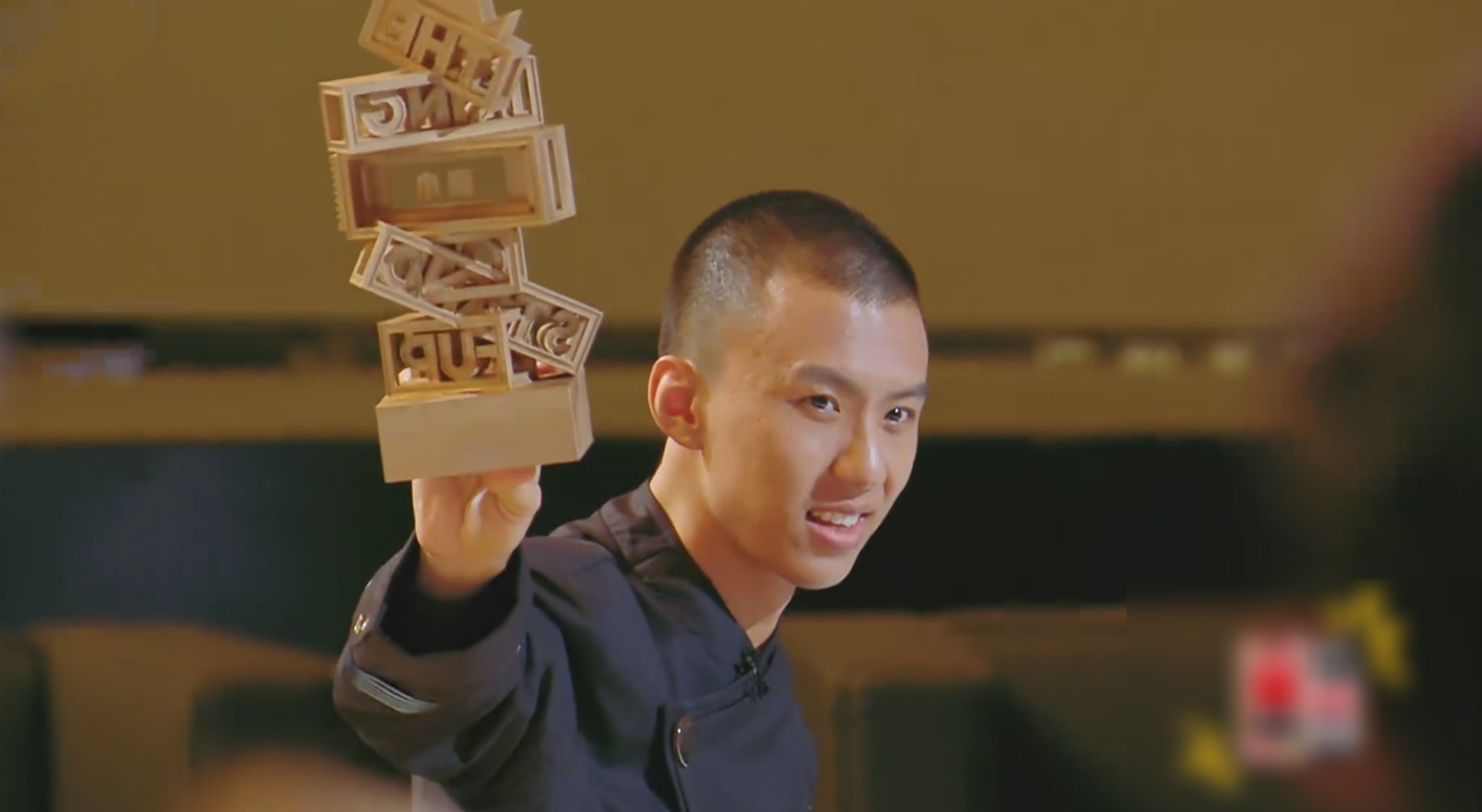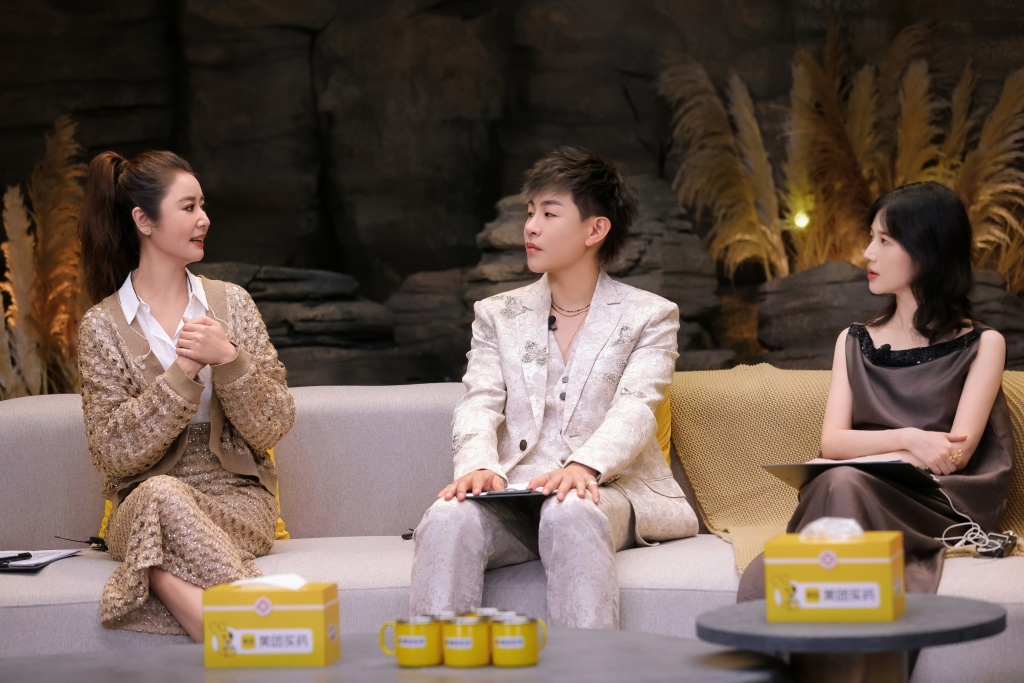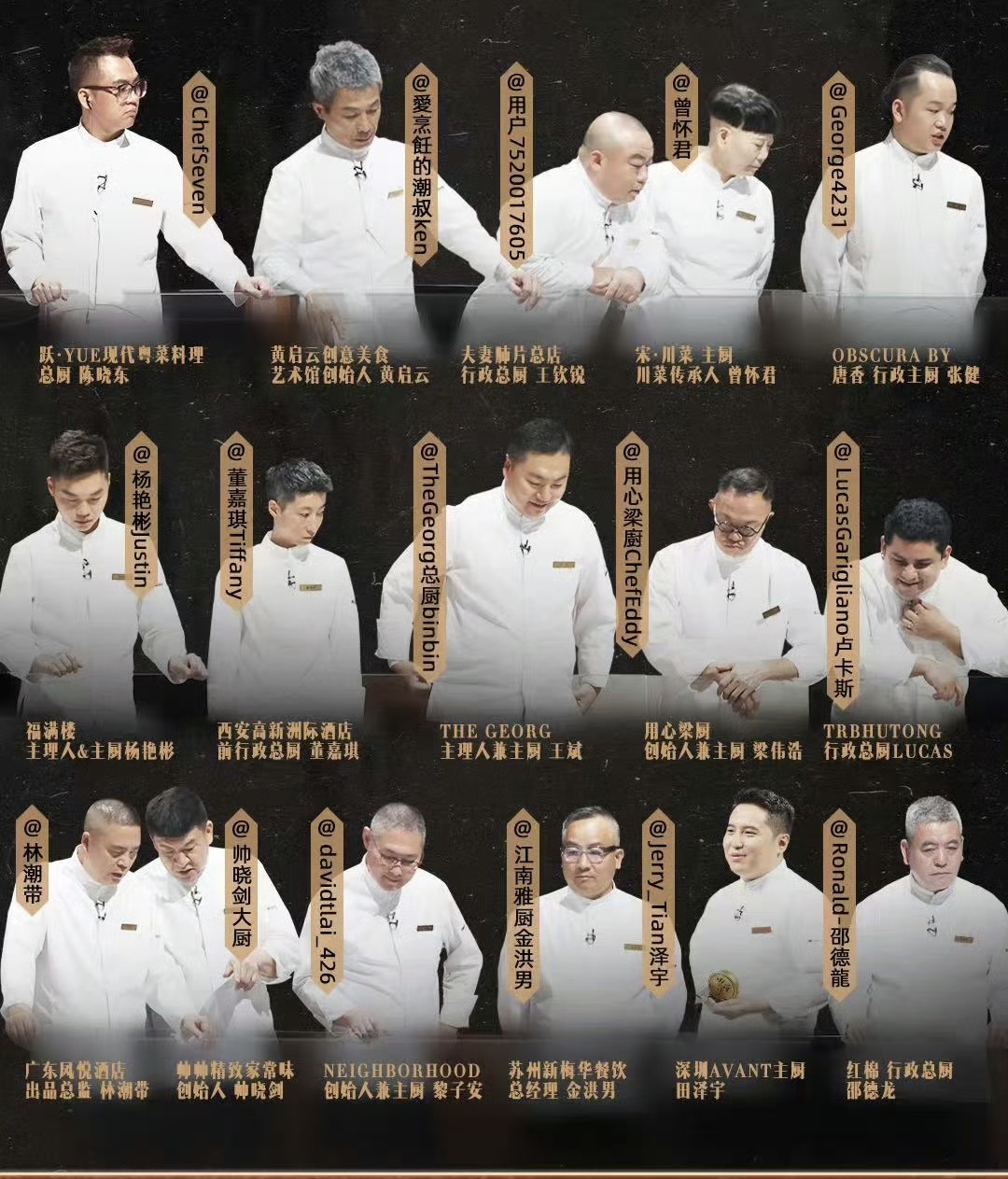
The finale of the comedy competition show "King of Comedy: Stand-Up Season" (hereinafter referred to as "Stand-Up Season") has arrived. The final round consists of two parts: in the first round, the ten contestants—Tang Xiangyu, Hei Deng, Yan Hexiang, Yu Xiangyu, Liu Yang, Liu Rencheng, Xiao Lu, Zhai Jianing, Xiao Luo, and Fu Hang—will each perform one by one. The top four performers will advance to the second round to determine the "King of Comedy."
By now, the audience already knows the results: Fu Hang, Xiao Lu, Hei Deng, and Liu Rencheng moved on to the second round, with Fu Hang being crowned the "King of Comedy"—a well-deserved title.

Fu Hang placing Xiao Lu's name tag in the championship trophy
If we consider contestants who have never participated in a stand-up comedy competition (until now, there was only "Stand-Up Contest") as "newcomers," then the first season of "Stand-Up Season" has indeed produced a stellar lineup. Among the ten finalists, only Xiao Lu, Tang Xiangyu, and Hei Deng participated in "Stand-Up Contest." Although Liu Yang has been doing stand-up for several years and Yan Hexiang is an experienced crosstalk performer, this is their first time competing in the stand-up comedy variety show.
To a large extent, the contestants in the "Stand-Up Season" finals represent the best quality of this season, although it is a bit of a pity that Nan Guo and Men Qiang did not make the final. We will provide a brief commentary on the performances of the finalists in both rounds, which will offer insights into their characteristics this season.
Opening the show, Tang Xiangyu talked about the stir she caused in her hometown after participating in the show, even being asked by her father to promote their hometown. Through interactions with her father—such as him changing his WeChat name and encouraging relatives to watch on TV—she showed how her family supports her while humorously mocking "snobbery." She also mentioned some male followers sending her messages wanting to marry her, satirizing societal stereotypes and discrimination against women, such as misunderstandings when women clearly say no or using the term "dominate" to describe relationships between men and women.

Tang Xiangyu
Throughout the season, Tang Xiangyu has shown a strong sense of identity. She explores profound yet entertaining discussions on female topics such as marriage pressure and personal growth, delivering humor that is both laugh-out-loud funny and thought-provoking, resonating with wisdom and strength. She encouraged the audience during her interactions: "Women need to focus on their careers and wield power; I have already entered the power center of my family."

Tang Xiangyu's message to women
Although Hei Deng forgot his lines during the finals, the overall substance of his material was indeed strong. Hei Deng openly criticized society's neglect and misunderstanding of blind people's needs, such as braille on subway handrails, disorganized walking paths, and leading blind people to barrier-free compartments without providing actual assistance. This reflects Hei Deng's keen observation and criticism of real-world issues.

Hei Deng
This material exemplifies Hei Deng's style, which opens a perspective on the vulnerability of the disadvantaged from the point of view of a blind person, blending entertainment with significant real-world implications—"high-level and noble."
Yan Hexiang's performance in the finals was themed around avoidance, progressing from the evasion on the crosstalk stage to motorbiking around the world, and culminating in the evasion of parental marriage pressures and career struggles. His emotions were sincere, revealing the instinctive avoidance psychology individuals experience in the face of adversity, while also conveying his love for the art of crosstalk. This performance confronts personal struggles and how to coexist with them, delivering a "tearful laugh."

Yan Hexiang
It also felt like a "speech," well-structured and solidly grounded, though his punchlines may have come a bit late. As a crosstalk performer, Yan Hexiang’s performances throughout the season retained the essence of crosstalk while incorporating the relaxation of stand-up, although he often leaned more towards the formal flavor of crosstalk. "Once I finish this performance and step off this stage, no matter which direction I go, I am one step closer to going home and performing crosstalk again." Wishing him all the best.
Yu Xiangyu changed his approach in the finals by shifting from discussing the challenges faced by a philosophy department graduate to focusing on his family and mother. This is a shared trait among many finalists: there was more personal expression and gratitude.

Yu Xiangyu
Yu Xiangyu told the story of his mother being placed on the untrustworthy persons list due to internet financial fraud and her efforts to learn and become a maternity nanny and infant caregiver to pay off debts. He transformed a potentially heavy family dilemma into lighthearted stand-up content, such as joking about “teaching my mom how to love other people's children with all my youth and childhood.” The text primarily expresses love, understanding, and support for his mother.
This may not have been Yu Xiangyu's best material, but it was heartfelt. His strength lies in presenting a very young and fresh perspective (reminding one of the philosophy contestant Da Guo Shou) to unpack the challenges facing young people. However, he also has limitations due to his limited life experience; once he finished discussing the struggles of university students and office workers, he couldn't fully tap into his advantages in newer areas.
Liu Yang, typically exhibiting "problem-solving" traits during the competition, also took an emotionally sincere route in the finals.
Liu Yang shared his experiences as a new father through the birth and growth of his son. He responded to the phenomenon of babies crying on high-speed trains, poking fun at the loud announcements made on high-speed trains while expressing empathy for children. The piece ultimately concludes with him reflecting on how, when he sees his parents playing with babies, he remembers how much love his parents had for him, leading to an understanding of their sacrifices.

Liu Yang
Some audience members noted that while Liu Yang’s performance works excellently for open mics, this particular segment might not resonate well with a live crowd. In fact, no matter what show Liu Yang participates in, he leaves an impression of being hardworking and intense, with a strong desire to win, so there are many who admire him and equally many who don't. This performance showcases a softer, more effortless side of him, which may help to break some stereotypes about him.
Liu Rencheng is one of the biggest dark horses of this season. His final piece continues to revolve around his mastery of storytelling about little people. Liu Rencheng shared his adventures in the entertainment industry, such as being forced to ride a bungee jump machine for a safety test during a show, full of bittersweet challenges; also, his feelings visiting Zhou Qimo highlighted the psychological change brought by their differences in fame. Despite Zhou being friendly, Liu Rencheng still felt uncomfortable, reminding him of Lun Tu's visit to Lu Xun.

Liu Rencheng's first-round performance received tremendous acclaim
Liu Rencheng’s material is quite thoughtful; he excels at creating hilarious segments from the perspective of ordinary characters. His growth fits perfectly within the show's intention of depicting a journey from minor characters to the King of Comedy.
Xiao Lu's final piece centers around issues of women's reproduction. From familial desires for legacy to the invisible obstacles faced by women after childbirth in the workplace and the inequality in family and childcare roles shaped by traditional concepts, Xiao Lu uses her unique perspective and witty language to incisively mock societal interference and oppression regarding women's reproduction.

Xiao Lu
As Luo Yonghao remarked, Xiao Lu maintained strong performances throughout the season, consistently achieving high standards—both in the depth of content and performance skills that left a significant impression. Although she faced some criticism off-stage, Yang Tianzhen praised her as one of the most formidable female stand-up comedians.
When the show first aired, Zhai Jianing was a popular newcomer, but as the season progressed and some old controversies resurfaced, public opinion surrounding her increased. Zhai Jianing made a considerable effort in the finals to counter the various labels placed upon her online. She certainly has every right to be critical of the more valued types of stand-up comedy, but isn't this criticism just another way of labeling other performers?
I hope he truly heard Yang Li's response. Yang Li said: "I believe the legitimacy of comedy is definitely about being funny; however, what stand-up comedy makes me feel is that its vibrancy comes from everyone having their own artistic standards, and we just need to stick to our own standards."

Yang Li comments on Zhai Jianing's performance
Xiao Luo's finals piece talked about his name, mentioning the origin of his stage name and a humorous episode involving another actor with the same name, as well as his childhood memories, including stories about remote control cars and sandals. These elements collectively showcase Xiao Luo's background and reflect his thoughts on why he finds it difficult to fit into common societal logic, further validating why many comedians consider him one of the coolest actors in the industry. Xiao Luo's performances resist trends and avoid trashy humor; he pursues self-expression, allowing him to remain calm and composed even in a high-pressure competitive environment.

Xiao Luo
As the first contestant to advance to the finals and having received the highest votes in the first round, Fu Hang also chose a self-expressive piece.
He recounted his growth experience as a underperforming student, from disputes with drivers to memories of his student days and interactions with foreign leaders. Each section is tightly linked, forming a complete storyline where all the struggles and grievances of being a "bad student" turned into humorous anecdotes. His conclusion, "bad students also have their strengths," is not only an affirmation of his past experiences but also conveys a positive message to everyone who has ever been considered insufficient—the unique value within each individual should not be easily dismissed.

Fu Hang
While Fu Hang's material may not be the best in every episode, he often secures the top votes following his performances


